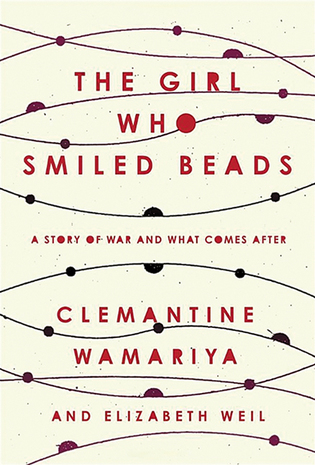 loading
loading
Arts & CultureReviews: July/August 2018Books about drinking, the Rwandan genocide, and a small New England town.  View full imageThe Girl Who Smiled Beads Sylvia Brownrigg’s new novel Pages for Her was published in paperback in July. It is impossible to read Clemantine Wamariya’s gripping memoir about surviving the Rwandan genocide without feeling astonishment at her courage, and admiration for her family’s endurance through appalling hardship, chaos, and violence. Yet it is also clear that Wamariya has no use for her readers’ admiration or astonishment. “I was often cast as a martyr or saint,” she writes of audiences who have attended her talks about her traumatic childhood as a refugee traveling through seven different countries, fleeing war, poverty, and uncertainty. “But I was still a character of their imagination; a prisoner of their assumptions.” In this remarkable book, Wamariya defines her own complex character, while acknowledging the deep human connections and love that have sustained her as she makes sense of the extreme paradoxes of her young life. The book opens in 2006, with a happier dramatic scene: teenaged Clemantine and her sister Claire appearing on the Oprah Winfrey Show, where they are reunited with the parents they have not seen since 1994 and who they had assumed were dead. By this point the sisters had been granted asylum in the United States, Claire was raising her young children in Chicago, and Clemantine was living with an American family and attending a suburban high school. From this prologue, in which Wamariya conveys the strangeness of going through such a profound personal moment in front of television cameras, her narrative cuts back and forth between her American progress that leads ultimately to Yale, and the seven tortuous years she spent as a child traveling with the endlessly resourceful Claire, as they escaped one catastrophic danger only to stumble into another. In lively prose (cowritten with Elizabeth Weil), Wamariya takes us from her comfortable Rwandan childhood before the war through the dawning awareness of a new, murderous danger, as they heard screams from the woods, and their parents urged them to flee. “My thoughts and sense became jumbled. Time felt hot. Silence was dizzying. My fear was bright blue.” Wamariya’s journey has taken her from destitution in disease-ridden refugee camps in Burundi to conferences with wealthy Silicon Valley billionaires. Her struggle is to make a whole life out of such contrasting shards; in this beautiful, urgent book she succeeds.
|
|